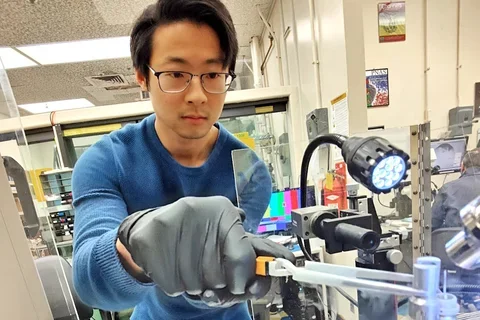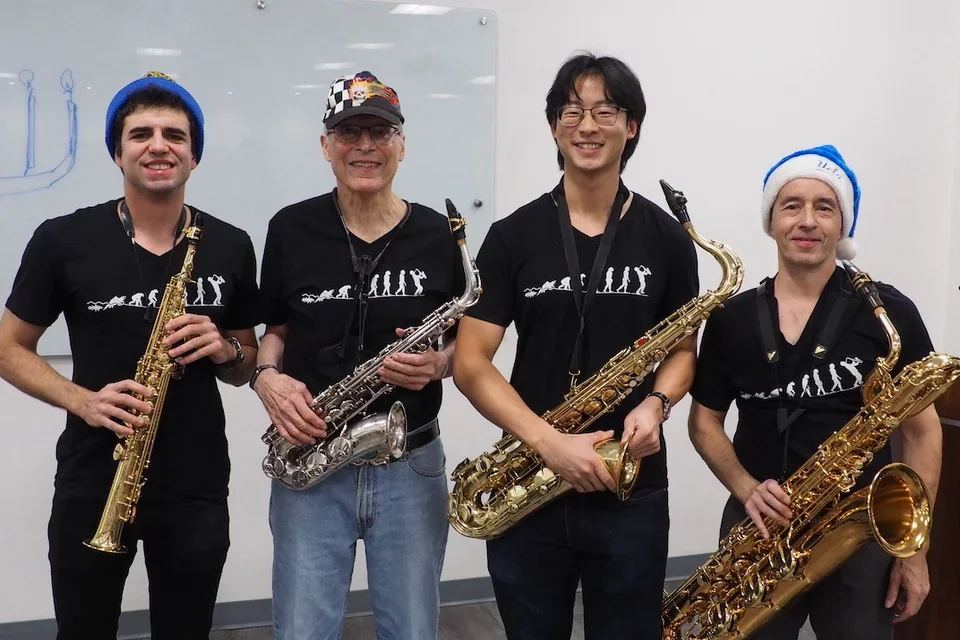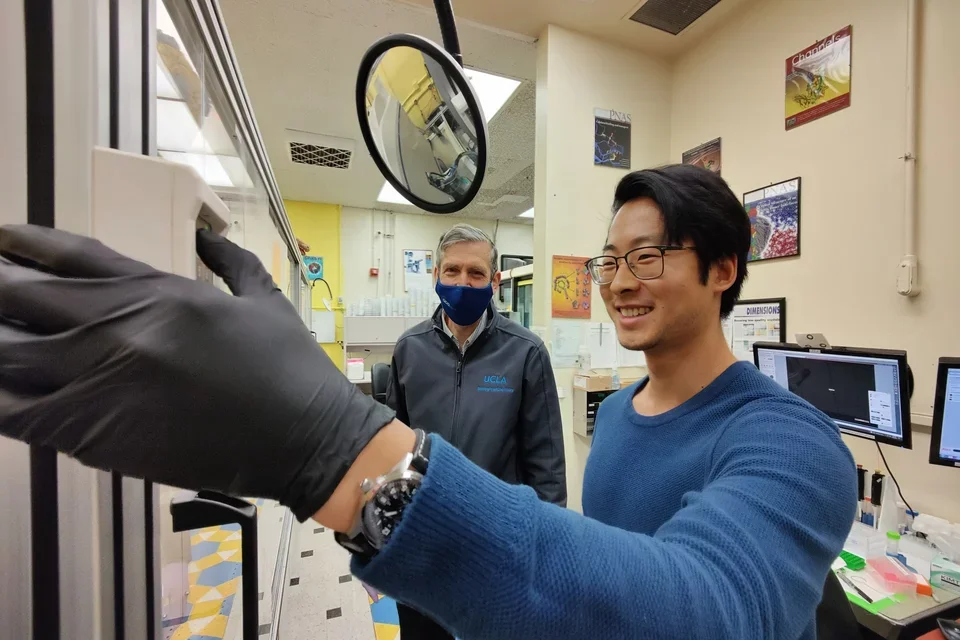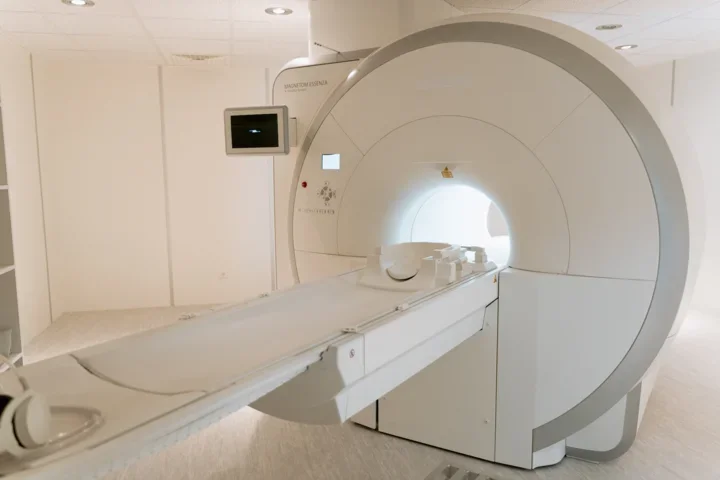A structural biology approach to improving Duchenne muscular dystrophy outcomes
Student Spotlight

Meet Justin Pi
Doctor of Philosophy (PhD) Program: UCLA Graduate Programs in Bioscience - Biochemistry, Biophysics & Structural Biology (BBSB) Home Area
Overarching research question: Can we leverage structural biology insights to advance treatments for Duchenne muscular dystrophy (DMD)?
Fun fact: Justin plays the saxophone in a quartet with UCLA colleagues. (They’re called The Saxy Scientists.)
Favorite advice: To be an effective researcher, you also need healthy work-life balance and strong mental health. (Justin finds balance through physical activity, including surfing, biking, and generally working out.)
Basic science detective work
Justin Pi’s future as a basic science researcher took shape as he studied biochemistry at the University of California, San Diego (UCSD).
“I felt like I was a detective,” he says. “You have to figure out how things work.”
Like a detective, Justin found gathering details and making connections both stimulating and rewarding. The cases he worked on simply unfolded in a laboratory and centered not on solving crimes but on illuminating the biological processes underlying human health conditions.
After earning both undergraduate and graduate degrees from UCSD, Justin wanted to learn even more. He set his sights on earning a PhD.

Duchenne muscular dystrophy (DMD): A fulfilling research focus
Justin grew up in California's San Francisco Bay Area before venturing to San Diego for college. He saw no reason to pursue PhD programs outside California. Besides, there was one major California epicenter he had yet to experience fully: Los Angeles.
When he received an admission offer from the UCLA Graduate Programs in Bioscience, he enthusiastically accepted. He arrived on campus thrilled to pursue work he felt passionate about at a school he’d admired since childhood.
Working in his Home Area director Feng Guo’s lab introduced Justin to a research focus that interested him as much as the research process.
In Duchenne muscular dystrophy (DMD)—a degenerative neuromuscular disease that negatively impacts patients’ quality of life as well as life expectancy—Justin found a research focus that came with ample opportunity to make things better and a substantial end-patient need.
“I got inspired by patient stories and hearing how the currently available therapies have improved their quality of life,” he explains.
“That encouraged me to continue the research and contribute to the development of these life-saving
treatments.”

Justin’s research centers around a mutation that affects the gene dystrophin and plays a key developmental role in DMD.
Without the mutation, dystrophin promotes efficient muscle function and stability. When the mutation is present, the body under-produces dystrophin and impedes optimal muscle function. Currently available DMD therapies can increase normal dystrophin expression, but only by a few percentage points.
Justin hopes his research will help streamline current therapies, increase dystrophin expression in patients, and ultimately, improve long-term DMD patient outcomes and quality of life.
Honoring patients and celebrating progress
When Justin chose to earn a PhD and pursue a career in basic science research a few years ago, he knew that meant he’d be spending time in a lab—and not in a clinic seeing patients. However, he doesn’t have to interact with them to have them top of mind every day.
His greatest research ambition has always been about having a significant positive impact on patients. Some of his highest and lowest moments as a researcher stem from this motivation. Translatable insights happen rarely and slowly. Furthermore, even investing significant time and energy into an inquiry can’t guarantee anything will come from it.
“I've always been taught that research is a marathon and not a sprint,” Justin says.
He finds both peace and the motivation to continue despite setbacks and bottlenecks by intentionally appreciating every time something he tries works, leading to additional insights and clues. Every step forward, no matter the size, merits celebration.
“It’s truly rewarding when the effort you put into your research yields actual, usable results,” Justin says.
“I count all progress as a victory.”



